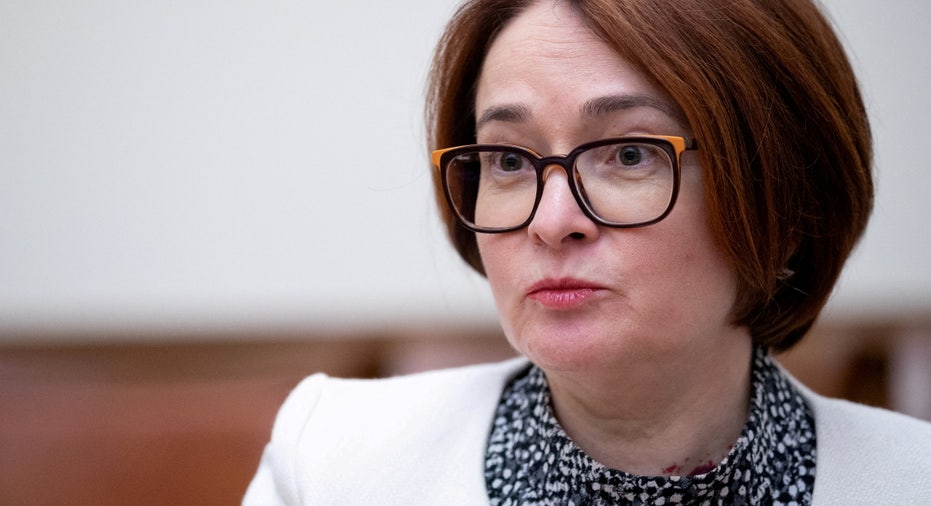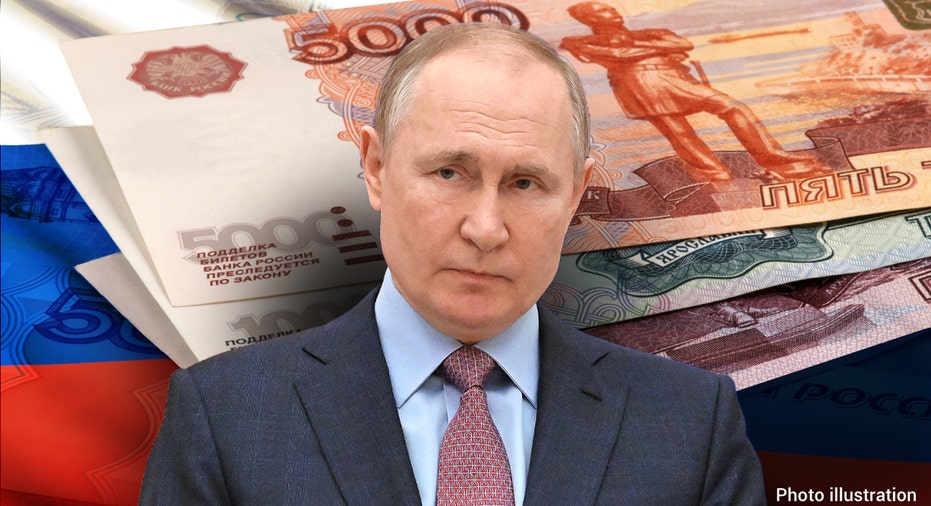Russia sanctions: What are 'grey markets' and how they can help Moscow's economic recovery?
Moscow will soon publish an approved list accepted 'parallel imports'
Europe banning Russian oil 'painful,' but must be done: Latvia defense minister
Latvia Deputy Prime Minister and Defense Minister Artis Pabriks says maximum sanctions must be placed on Russia in order to end its war on Ukraine.
Russia has approved "grey markets" as an additional tool to maintain its recovery momentum – but what are these markets and how have they actually helped Moscow with its sanctions headache?
"The Russian markets – its economy as we know – they’re very different from what we know in the United States," Anthony Kim, a research fellow in economic freedom at the Heritage Foundation, explained to FOX Business. "The lack of transparency, accountability…far less efficient and clean."
RUSSIA INVADES UKRAINE: LIVE UPDATES
Russian Prime Minister Mikhail Mishustin has approved these markets – also referred to as "parallel imports" – as a way to support small and medium-sized businesses in the country as Moscow continues to combat the effects of severe sanctions from the West over the invasion of Ukraine.
In this photo provided by The State Duma, The Federal Assembly of The Russian Federation, Russian State Duma speaker Vyacheslav Volodin, left, and Russian Tax Service chief Mikhail Mishustin, who was nominated to replace Medvedev, walk in the State Duma, the Lower House of the Russian Parliament in Moscow, Russia, Thursday, Jan. 16, 2020. Russian President Vladimir Putin has named tax service chief Mikhail Mishustin as Russia's new prime minister. (The State Duma, The Federal Assembly of The Russian Federation via AP) | AP Newsroom
"This approach will guarantee the shipment of goods to our country…in spite of the unfriendly actions of foreign politicians," Mishustin said of the move, adding that the Ministry of Industry and Trade would soon produce a list of accepted parallel imports.
These markets and imports will occur without needing to obtain permission from a trademark’s owner, a move that is similar to "legalizing Russia’s bootleg economy," according to Fortune.
Kim said that the U.S. "cannot apply the same types of analytical tools and expectations" to Russia’s markets, and the Institute of Export & International Trade in the U.K. noted that the markets should "flourish."
Russia has gone to great strides to rein in its economy, which faced a number of shocks and setbacks due to the western sanctions: Initial panic led to Russian citizens trying to pull their money from the bank, which forced banks to then borrow heavily from the Bank of Russia to meet demand.
STOCKS GAIN ON JOBS GROWTH, OIL FALLS BELOW $100
The Wall Street Journal argued that strict limits from Russia’s Central Bank on currency exchange, withdrawals and hard-currency transfers helped to rein in the wild fluctuations that initially spooked officials into shutting down trading on the Moscow Exchange for almost a month.
Russia also faced the danger of sovereign default but avoided that particular hurdle with a debt payment of roughly $117 million. Credit rating agency Moody's earlier this month put Russia on the second-lowest rung on the credit ladder, just above default.
But Kim argued that Russia has not made a "meaningful" recovery.
CLICK HERE TO READ MORE ON FOX BUSINESS
"There was an immediate shock or reaction from the Russian market and the markets outside Russia, which is why we saw this immediate legitimate panic and legitimate downturn," Kim said. "And where we are now is a different kind of period."
The BBC reported that annual inflation has continued to climb despite the appearance of recovery, hitting 15.66% this week.
























